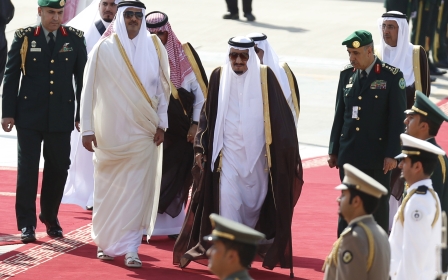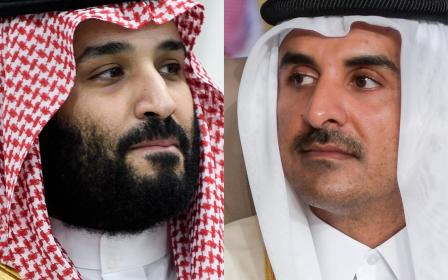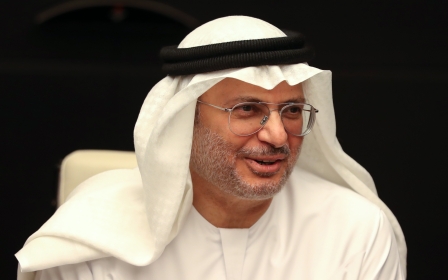US Air Force chief 'hopeful' Gulf crisis will end, urges unity against Iran
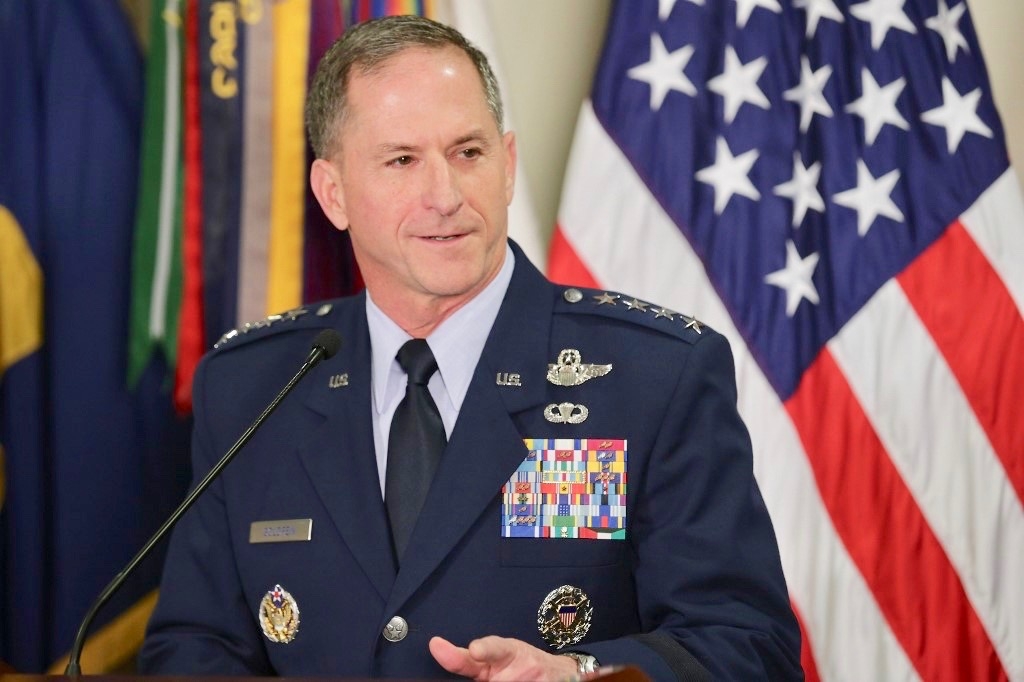
US Air Force Chief of Staff David Goldfein said on Saturday he was hopeful a dispute among Gulf Arab states may soon end and urged them to unify their military capabilities as tensions with Iran simmer.
Washington sees a political rift that Saudi Arabia, the United Arab Emirates, Bahrain and non-Gulf state Egypt have with Qatar as a threat to efforts to contain Iran and has pushed for a united front.
"Certainly I am hopeful," Goldfein told Reuters in Dubai when asked if he thought the rift could soon be resolved. "It's certainly in our best interest to see if they can come to a political solution."
In a sign the dispute may be easing, Saudi Arabia, the UAE and Bahrain have said they would participate in the 24th edition of the Arabian Gulf Cup, hosted by Qatar later this month despite a boycott they have imposed on Doha.
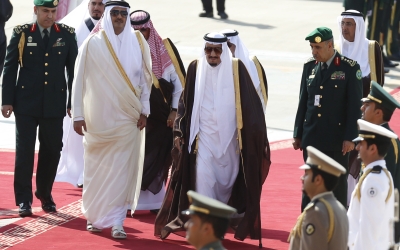
Washington has unsuccessfully tried to mediate the dispute in which the four nations have severed political, trade and transport ties with Qatar since mid-2017 over accusations it supports terrorism, which Doha has repeatedly denied.
Earlier this week, the Saudi-funded Elaph news website reported that the boycotting countries were taking steps towards “setting directions” for its media outlets to avoid commenting on Qatar in political and sports programmes.
Other signs of a rapprochement included visits made to Oman by Abdullah Bishara, a former Kuwaiti secretary-general of the Gulf Cooperation Council (GCC), and Prince Khalid bin Salman, Saudi Arabia's deputy defence minister. Both Oman and Kuwait have been mediating in the row that has fractured the six-member GCC.
The United States is allied with all six Gulf Arab states. Qatar hosts Al-Udeid air base, the largest US military facility in the region, while Bahrain is home to the Navy's Fifth Fleet.
Goldfein earlier pressed the Gulf states to resolve their differences and work together to defend against the threat he said Iran poses to their security.
"When a missile or a UAV (drone) is en route from Iran that is not the time to reconcile past grievances. That time is now. Today," he said at an air chiefs conference
The US blames Iran for a series of attacks in the Gulf over the summer, including a 14 September missile and drone attack on Saudi Arabia that temporarily shut down half the kingdom's oil production. Tehran denies involvement.
"No one country has everything it needs to defend itself, but together we have exactly what we need for collective defence," Goldfein said. "We have the power to begin this right now as we face a common adversary who seems committed to malign behaviour across the region."
Gulf military chiefs last month called for unified efforts between their armed forces following the attack on Saudi Arabia.
Emphasising the principle of collective security, Goldfein said the best chance to defend the UAE may be from Qatar or neighbouring Oman. "Neighbours to the right and to the left who by geometry alone have a better shot," he said.
Middle East Eye delivers independent and unrivalled coverage and analysis of the Middle East, North Africa and beyond. To learn more about republishing this content and the associated fees, please fill out this form. More about MEE can be found here.


